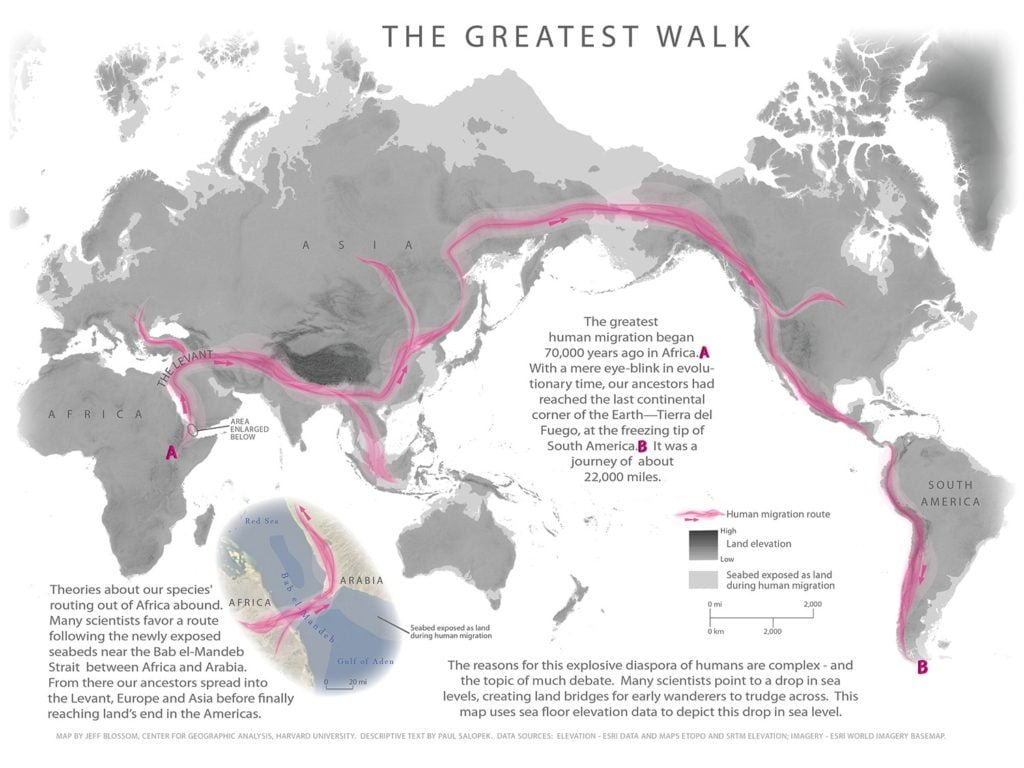People so often assume that a linguist’s job is to learn as many languages as
Linguists do not engage in learning languages, linguists engage in studying how language works. And when I say language, I mean human language, an umbrella term that subsumes all languages spoken by humans, including pidgins, creoles, and sign languages. Thanks to linguists the world is a better place, many daunting problems that existed for centuries have been solved because now we have a better understanding of language and language-related issues. In this article, you will see the contributions of linguists to the modern world.
Let’s have some examples before we break things down in more detail. A linguist’s job could involve exploring the neuroscience of how language works in the brain; the typology of how different languages achieve similar functions using different formal devices, the developmental psychology of how child language acquisition works and how it can go awry; how language ability stops working in aphasia, Alzheimer’s, or due to some other dysfunction; how language works as a bidirectional human-computer interface; how language works when learned later in life in the classroom; how languages change; how language defines various social identities; how language functions in other professions, including politics, law, and law enforcement; and how does one make new, working constructed languages ( yes linguists brought you Dothraki and Valyrian).
Actually, doing linguistics today looks more like this:

There are a lot of things you can do with linguistics to get paid. Let’s go through the list together:
Research
Academia: Some linguists teach and do research at Universities in Linguistics departments as well as in Psychology, Speech and Hearing Sciences, Cognitive Science, and Computer Science departments. Most big universities have linguistics departments, but many universities don’t, which is a dismaying fact for linguists when compared to a discipline like psychology.
Research Scientist: In addition to research at a University, there are other organizations supporting linguistics research including the NIH (e.g., National Institute on Deafness and Other Communication Disorders), the NSF, DARPA and the Department of Veterans Affairs. In Europe there are places like the Max Planck Institute for Psycholinguistics, CNRS and BCBL – Basque Center on Cognition, Brain and Language that fund direct linguistics research far more generously than the US.
Corporate Research: A handful of companies (Google, Microsoft, Yahoo! to some degree) invest in basic linguistics research. Much of it is focused on stuff like NLP/NLU (see below). Raytheon also has a big Speech Tech research division (Speech, Language & Multimedia).
Lexicography: Linguists are the ones that determine what goes in the dictionary and what does not go in. Pissed about literally being acceptable as simply an intensifier. Blame a linguist, but know that the decision was made based on tons of research.
Entertainment
Hollywood: There are surprisingly many ways linguists can make a buck in Hollywood that doesn’t involve waiting tables. There are the handful of folks (and their society, Language Creation Society) that make languages for movies and shows like Avatar and Game of Thrones, but there are also dialect coaches and linguistic consultants for shows that attempt to have some sort of historical accuracy in the language spoken.
Linguistics Pundit: Many big papers have some sort of On Language type column and a few magazines, too. Linguists or pseudo-linguists (e.g., William Safire) write these columns, generally to the delight of prescriptive grammar nerds. Then there are folks like Deborah Tannen who also happens to be an academic, who are in the public eye talking about how we talk to each other.
High Tech
Localization: As companies become more and more global, more and more expertise is needed in taking some product suited for some nation and moving it to another language and culture. Many companies, including Google (e.g., Google Localization Specialist Jobs) hire linguists to help them set up a web presence in some new locale.
Natural Language Processing: We interact with computers a lot these days and it sure would be great to do so by just talking. Some day soon we might be able to. Supposedly the xbox one will have a pretty solid natural language understanding interface and Siri and Google Glass depend on this sort of technology, too. While generally CS-heavy, it is often developed through a combination of computer science and linguistics. Things like automated language translation come in to play here, too.
Semantic Analysis/Big Data: What’s the word on twitter about PRISM (NSA surveillance program)? How do the folks on Quora feel about Justin Bieber (musician)? Figuring out how to sift through the vast amount of big data that is natural language data takes computer science, statistics and linguistics. And presumably PRISM itself involves some decent amount of linguistic sophistication – I’m sure NSA is hiring (Intern Program at the National Security Agency)!
Document Management: We have a lot of documents these days. Corporations have a lot more. Linguists can help create automated systems that make sense of your documents, get the gist of what they’re about and organize and retrieve them when necessary.
Language Testing: There are two routes you can go here. First are companies that do language proficiency testing, and in particular, there’s a move towards doing automated phone-based testing. An obvious application would be to score the English ability and accent for applicants to a call center. You can also work on figuring out how to test native speaker’s ability in their native language. Companies here include Pearson and ETS.
Linguistics in other fields
Forensic Linguistics: There are many experts in this field. Joe Devney is one such example (e.g., For what legal cases have linguistics played a big role?). Linguists can be involved in a lot of different dimensions of a law case, from interpreting the language of contracts to identifying if someone is drunk based on their voice.
Language and culture
Translation: Translation involves appreciating a lot of the subtleties of two of more languages and figuring out how to translate from one to the other. Translation services is a big business and has been for a while. We’ll see how much of it ends up being taken over by high-tech and automated translation.
Language Revitalization and Documentation: Languages are dying, and dying fast. So, there is a market for linguists to help groups — Native American tribes, for example — revitalize and or document these threatened languages.
Language and health
Speech Pathology and Audiology: Generally, this requires a separate degree in Speech Path or AuD, but there isn’t too much differentiating this field from linguistics. Indeed, many of the profs at Speech and Hearing Science departments have Linguistics PhDs. Speech pathlogists can work with children (many work for school districts, for example), aphasia/stroke patients and older adults.
Hearing Aids: Hearing aids are a big business in the US and building a better hearing aid will often involve understanding how humans perceive speech since that’s the sounds people generally care about most. Linguists do research for hearing aid companies as well as fittings and so on; sometimes a SP/Aud degree is also needed.
Language as a tool for diagnosis: An emerging niche field, but the one I’m going to end with because I think it’s an interesting area ripe for research. The way you talk changes when you suffer from Alzheimer’s, traumatic brain injury and possibly things like depression and schizophrenia. This may lead to powerful tools for preliminary diagnostic tools without the need of a doctors office visit. Just talk into your smart phone and have an algorithm, written by a linguist, figure out next steps.
I’m sure there is more. If you have any additions, kindly leave them in a comment.







